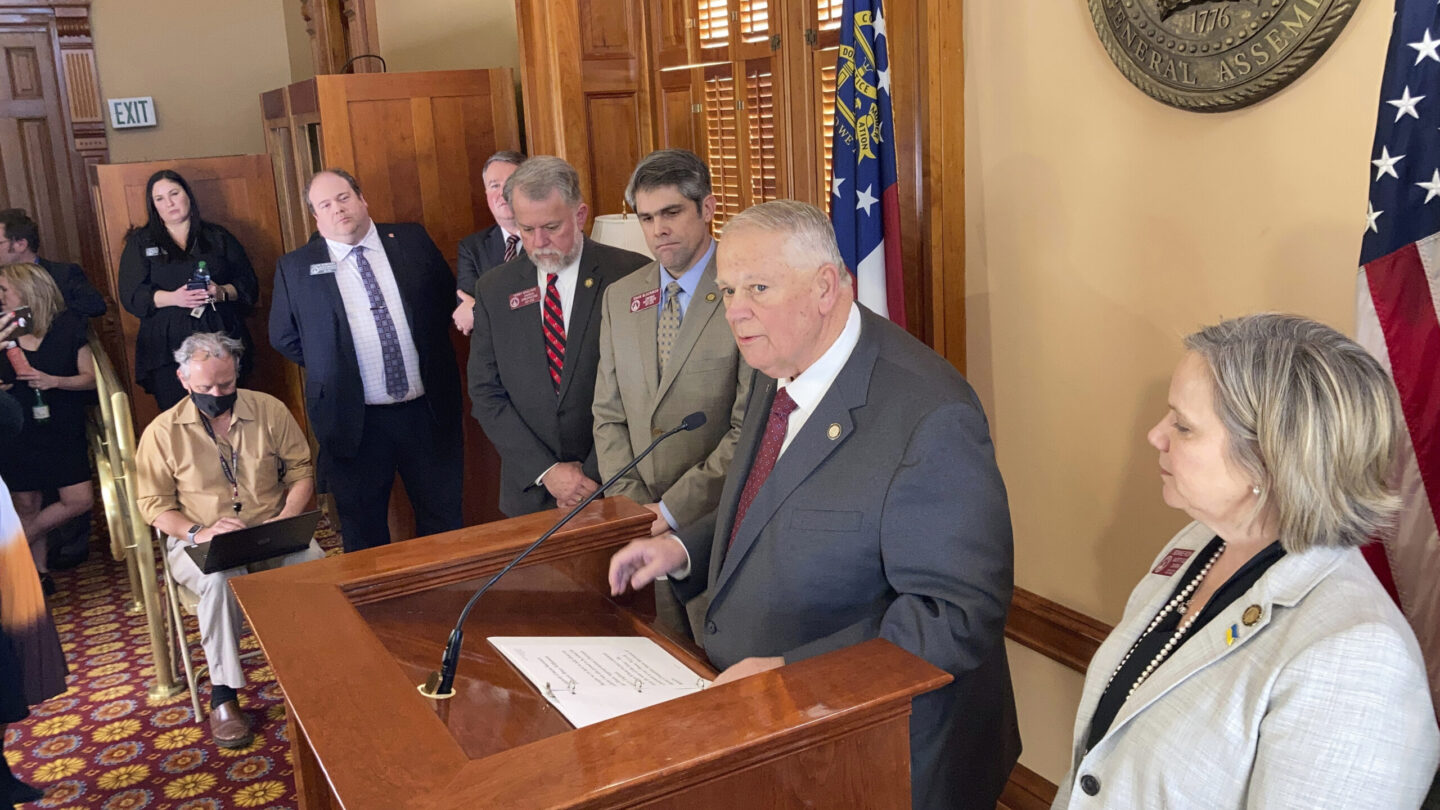Tax cut sails through Ga. House; findings show big boost to rich

A plan to cut Georgia state income taxes by more than $1 billion passed the state House Wednesday on a 115-52 vote, with a significant number of Democrats backing the plan despite findings that the changes would raise taxes on more than 500,000 Georgians and that overall benefits are tilted toward the most wealthy taxpayers.
House Speaker David Ralston and other Republicans supporting House Bill 1437 say it simplifies the state’s tax system while providing relief. It would create a flat state income tax with a 5.25% rate, raise the amount of income exempt from taxation, and eliminate many deductions.
“We settled in on a proposal that is simple and fair and allows Georgians to keep a larger portion of their hard-earned money,” said House Ways and Means Committee Chairman Shaw Blackmon, a Bonaire Republican.
The measure moves to the Senate for more debate.
The changes would begin in 2024, meaning most taxpayers would see no difference until they file their taxes in 2025.
Georgia’s top income tax rate is now 5.75%, which applies to income over $7,000 earned by a single person or income over $10,000 earned by a married couple or single person with dependents. Below that are a series of lower brackets created when typical incomes were much lower.
The Republican plan would wipe out those lower brackets, setting up a flat rate of 5.25% and eliminating a number of deductions for people who itemize their income taxes. To offset what would be a tax increase on some low-income earners, the measure also increases the standard exemption to $12,000 from $5,400 for single people and to $24,000 from $7,100 for married people. The measure eliminates a separate standard deduction, rolling it up into the more valuable and higher standard exemption.
The bill would retain a $3,000 exemption per dependent, deductions for charitable contributions, and exemptions for retirement and disability income and college savings plan contributions.
Republicans say the bill means a family of four making $30,000 would pay no state income tax.
But an analysis by the liberal-leaning Georgia Budget & Policy Institute, using modeling by the Institute on Taxation and Economic Policy, shows that 62% of the benefits would go to the top 20% of Georgia tax filers. While the top 1% of Georgia taxpayers, earning more than $575,000 a year, would get 18% of all benefits, the 3 million filers in the bottom 60%, earning less than $64,000 a year, would get just 19% of benefits.
“This is an incredibly regressive bill,” said Rep. Matthew Wilson, a Brookhaven Democrat.
Democrats also noted it was being pushed through with limited debate and no fiscal note analyzing revenue effects.
“This bill has been rushed through in an election year because it’s going to look good on a mailer, but it’s not smart policy for Georgia,” Wilson said
About 20% of filers making more than $64,000 a year would see tax increases, the GBPI analysis shows. Overall, while Republicans said 95% of Georgian taxpayers would see cuts, the GBPI analysis places that share at 62%.
“Right now is not the right time to raise taxes on some Georgians, on any Georgians,” said Rep. Jasmine Clark, a Lilburn Democrat.
In 2018, the General Assembly cut Georgia’s top income tax rate from 6% to 5.75%. Republicans had envisioned a decrease to 5.5%, estimated to cost $500 million. Instead, last year, lawmakers raised the amount someone could earn before paying state income taxes, forgoing $140 million in revenue.
Some lawmakers have proposed going further. Senate President Pro Tem Butch Miller of Gainesville has joined his fellow Republican candidate for lieutenant governor, Sen. Burt Jones of Jackson, in proposing to entirely abolish the state income tax, which provides roughly half of Georgia’s nearly $30 billion in state revenue.
Former U.S. Sen. David Perdue, the top Republican primary challenger to incumbent Gov. Brian Kemp, also supports eliminating the income tax, saying Wednesday that it could be done “incrementally.” Perdue told reporters he favors making permanent the $1.6 billion one-time tax refund that Kemp is pushing, saying that and other changes could allow the state to lower its tax rate to 4.75%.
Ralston, though, has said he favors “responsible” tax cuts that don’t eliminate so much revenue.
Cutting even $1 billion could pressure Georgia’s ability to meet its needs, Clark warned.
“If we cut $1 billion from our budget, we’re going to have to cut education, we’re going to cut health care,” she said. “We are going to have to cut mental health.”
Follow Jeff Amy on Twitter at http://twitter.com/jeffamy.






